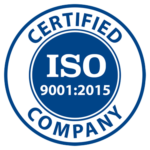HPM Certification: Water and Salt-Water Corrosion Resistance
NLGI’s High-Performance Multiuse Grease Standard Includes 2 Subtypes for Marine Use
We previously covered the NLGI’s introduction of the HPM CORE grease certification, where manufacturers face new testing requirements with stricter standards. This month’s post focuses on HPM + WR (Water Resistance) and HPM + CR (Salt-Water Corrosion Resistance). The remaining HPM grease tag for Low Temperature applications—HPM + LT—will be a future post.
Summertime is the perfect time to be on the water, whether working or playing. But how can you make sure your marine vehicles are properly lubricated and protected from corrosion? The National Lubricating Grease Institute (NLGI) has a new High-Performance Multiuse (HPM) standard that certifies greases for high performance in water resistance and salt-water corrosion resistance.
How Do Marine Environments Affect Grease?
Marine grease is formulated to offer maximum water resistance, so it can stay put and do its job. For boats and marine vessels used outdoors, it’s vital to have a grease that performs in water and stands up to corrosion and rust, high temperatures, and extreme pressure.
Using marine grease prevents premature wearing of parts that frequently contact surfaces or are submerged in water—components like anchor chain reels, hinges, propellers, boat lifts, boat trailer wheel bearings, etc. Because the lubrication causes smoother movements, it lessens strain and potential damage and supports longer intervals between lubrication, which regulates maintenance and replacement costs.
In our blog on grease components, we covered some aspects to consider when choosing a grease. Here are the items that most apply to marine use:
- Where the grease will be used: A grease being used on a small personal watercraft would face different conditions than a grease lubricating the propeller shaft of a dredge or an ocean liner. Similarly, a higher temperature rating would be important in a hot climate since marine grease will easily melt when it’s hot.
- How it will be applied: Having a thick grease will help it stay in place so it can defy water and create a blockade between the elements and the components it safeguards.
- What the grease will be doing: Will the grease be coating closed trailer wheel bearings or greasing open gears? Greases for those situations would have different requirements.
What Are the New Certifications (and What Do They Mean)?

- HPM + WR (WATER RESISTANCE) GREASE
While HPM CORE involves basic requirements for wear under pressure and resistance to water washout, to qualify for HPM + WR, a grease has to show an increased level of performance beyond CORE in wet environments. There are 3 tests:
- Water Washout determines how much grease is lost in the presence of water. A lower test result indicates less washout, with more grease remaining in the application.
- Water Spray Off demonstrates a grease’s ability to resist water spray.
- Wet Roll Stability evaluates the effect of water on grease mechanical stability.
- HPM + CR (Salt-Water Corrosion Resistance) Grease
It’s common knowledge that non-stainless, non-aluminum, or low-grade metal parts can get damaged by salt, causing corrosion or rust. Most bearings face humidity from outdoor use or day-to-night temperature differences, so the bearings can rust. HPM CORE tests for corrosion resistance, but to be certified as HPM + CR, a grease has to pass 3 tests to show its improved ability to prevent corrosion in salt-water environments:
- Salt Water Rust is similar to a test in the HPM CORE but uses diluted synthetic seawater.
- EMCOR Rust (2 versions) assesses the ability of grease to prevent corrosion in rolling bearings operated in the presence of different liquid solutions. HPM + CR tests for corrosion protection using 100% synthetic seawater and 0.5 N sodium chloride (~3% NaCl) solution.
Greases typically have added corrosion inhibitors to protect against the leading causes of corrosion: humidity, water, contamination, and high temperatures. This type of additive reduces or eliminates internal rust and corrosion by neutralizing acids and forming a chemical protective barrier to repel moisture from metal surfaces.
Why Choose HPM Certified Grease?
There are other greases on the market that also meet high performance standards, so the HPM program is another method for recognizing quality products. Heading into summer 2022, only 8 greases are licensed to use the HPM trademark, so these products stand out in an otherwise crowded grease market.
To learn more about the HPM program, visit our HPM Grease Certification blog.
If you have questions about grease types, reach out to our team at Pack Logix. With over 70 years of experience working with high-caliber products, we’re recognized as the industry’s quality-driven contract packager of oils, lubricants, greases, fluids, and specialty products.


